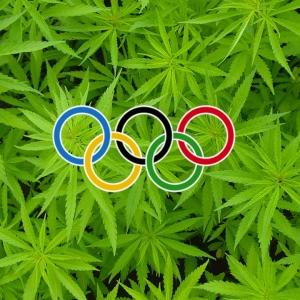Jul 6, 2021Why the World Anti-Doping Agency Bans Marijuana
U.S. Olympic favorite Sha’Charri Richardson made headlines recently after her disqualification and suspension from the 2020 Tokyo Summer Olympics for using marijuana.
In June, Richardson, 21, won the women’s 100-meter at the U.S. Olympic Track & Field Trials but was suspended for one month after she tested positive for marijuana. After news spread of her suspension, Richardson shared she used the substance to cope with her biological mother’s death a month before the trials.
 The story garnered a huge response from the public, which varied from supportive of the sprinter and others that supported the suspension.
The story garnered a huge response from the public, which varied from supportive of the sprinter and others that supported the suspension.
As of June 30, 19 states have legalized the recreational use of marijuana while Washington D.C. and Guam also have legalized it. Nevertheless, the substance is still illegal on the federal level, which can cause confusion about its place in the world.
A recent article on TheSportsExaminer.com highlighted why the World Anti-Doping Agency still has marijuana on its banned substance list. Below is an excerpt of that article with citations from “Cannabis in Sport: Anti-Doping Perspective” written by Marilyn Huestis of the U.S. National Institute on Drug Abuse, and Irene Mazzoni and Oliver Rabin of the World Anti-Doping Agency (WADA).
● “Cannabis is often portrayed as a substance that has detrimental effects on performance.”
● However: “Smoked cannabis can decrease anxiety, fear, depression, and tension. THC [the main psychoactive drug in cannabis] is anxiolytic [used to reduce anxiety] at low doses, the doses reportedly consumed by athletes.”
● “In human volunteers, THC and cannabis also increased impulsive responses leading to more risk-taking behavior but without affecting decision making. In this regard, and from a sports perspective, Martinez suggested that cannabis smoking reduces anxiety, allowing athletes to better perform under pressure and alleviate the stress experienced before and during competition.
“Furthermore, cannabinoids play a major role in the extinction of fear memories by interfering with learned aversive behaviors. Athletes who experienced traumatic events in their sports career could benefit from such an effect. For these reasons, Wagner described cannabis as ergogenic [enhances performance]. The endocannabinoid system is also involved in the modulation of mood. … In adolescents and young adults, cannabis also helps in coping with negative mood and emotional distress.”
This is why marijuana is on the WADA Prohibited List.
» ALSO SEE: A Q&A with Dr. W. Chris Winter, The ‘Sleep Whisperer’
This is supported by the real-life example of Canadian snowboard star Ross Rebagliati. He won the Snowboard Giant Slalom at the 1998 Olympic Winter Games in Nagano (JPN) but was disqualified after testing positive for marijuana use (which he blamed on secondhand smoke). He was reinstated because marijuana was not on the prohibited substances list at the time – WADA was formed the next year – and Rebagliati has continuously touted its positive effects.
In a 2015 news story, he maintained “that cannabis is a performance enhancer, and that usage can be helpful for some activities such as extreme sports, as it improves muscle relaxation, reduces anxiety, and extincts fear memories (e.g., negative experiences) leading to enhanced performance. It may also improve sleep time and recovery, which may favor performance when an athlete is facing multiple competitions in a short period of time.”
To read the full story from The Sports Examiner and the World Anti-Doping stance on cannabinoids, click here.


